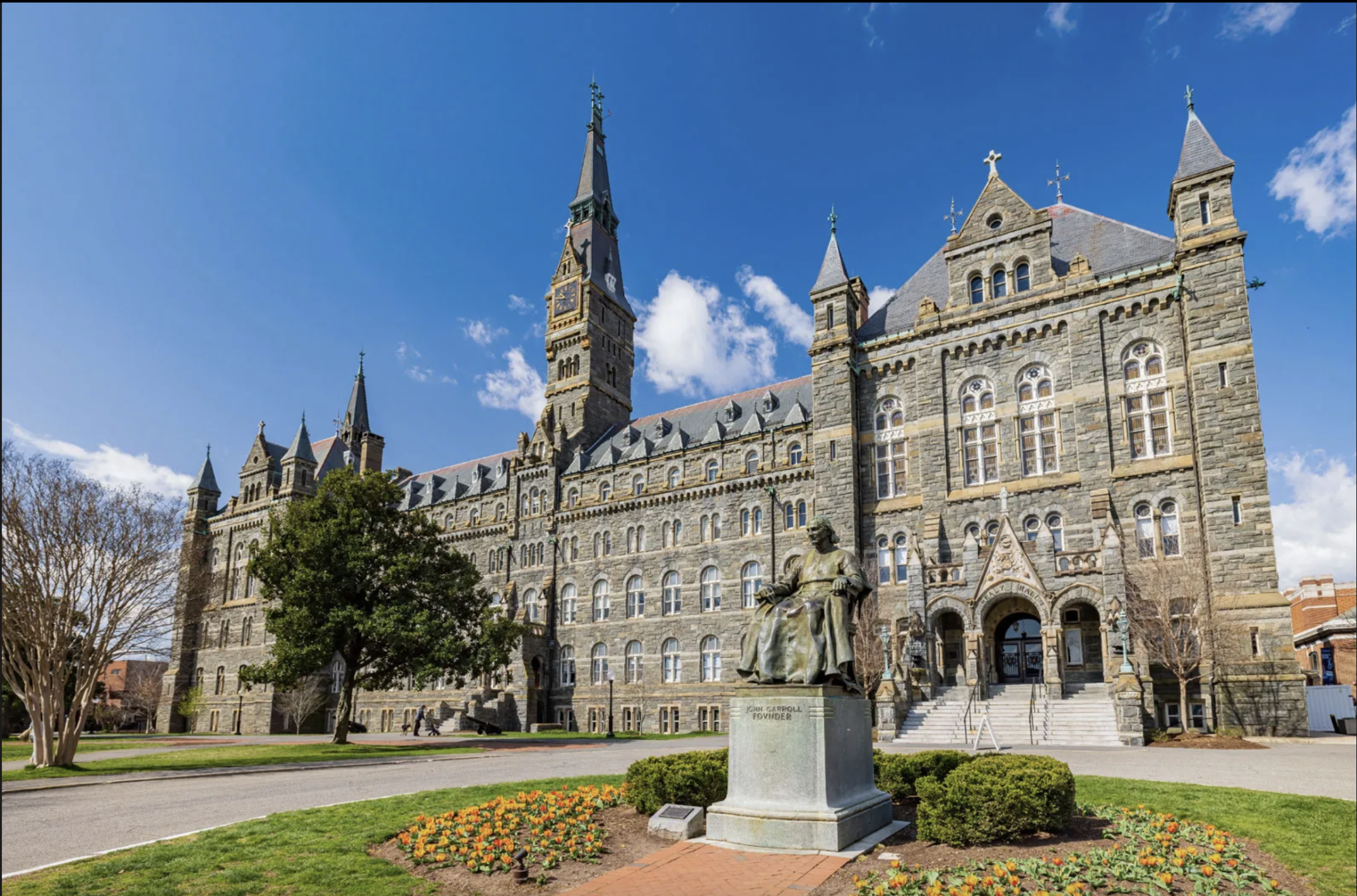Georgetown University and the London School of Economics and Political Science (LSE) announced Oct. 14 the first series of faculty recipients of a collaborative research fund between the universities.
The LSE-Georgetown University Research Seed Fund, launched in March, aims to support collaborative research projects between Georgetown and LSE faculty that focus on political economy, sustainability and health while bolstering the institutions’ academic relationship. Three Georgetown public policy professors — Jennifer Tobin, Jishnu Das and Bhumi Purohit— received the grant alongside Arik Levinson, an economics professor; Erik Voeten, a government professor; and Irfan Nooruddin, an Indian politics professor.

Each Georgetown and LSE professor will receive up to $25,800 for the first cohort of research projects, which will focus on topics aimed at investigating and addressing issues of public health, climate change, and other related areas.
Das, whose work focuses on health and education in low- and middle-income countries (LMICs), said his project will seek to reduce barriers to healthcare in low-income countries.
“The traditional model of healthcare in low-income countries is premised on the idea that too many people lack access to care,” Das wrote to the Hoya. “Addressing such access constraints have been critical to significant improvements in health outcomes throughout low and middle-income countries.”
Mylène Lagarde, an associate professor of health economics at LSE working with Das, said the cooperative aspect of the fund is key to investigating LMICs.
“Our partnership brings together two teams with deep expertise and knowledge in healthcare markets in LMICs,” Lagarde wrote to The Hoya. “Bringing together our standardized patient studies allows us to pool datasets and analytic approaches that would not be possible in isolation. Our collaboration will also support training opportunities for students and junior researchers, and promote future joint research initiatives that address urgent questions in global healthcare markets.”
Levinson, whose work focuses on environmental and energy economics, said he will study how people experience pollution unequally, with a particular focus on London.
“There’s a lot of evidence of environmental inequities — pollution is worse in less prosperous places,” Levinson wrote to The Hoya. “But people move around. I’d like to know how the pollution people experience during the day changes depending on where they go and how they get there.”
“It could change people’s behavior to avoid the places and times with the worst air quality,” Levinson added. “And it could change how policymakers approach environmental inequities.”
Nooruddin said his project will examine the evolving impact of technology on public services in India.
“My hope is that our project will seed a longer-term research agenda about how digital public infrastructures alter the citizen-state relationship, and how they affect prospects for collective action that advocates for marginalized groups and greater redistribution,” Nooruddin wrote to The Hoya.
Tobin, whose research focuses on the political economy of development, said she hopes to provide direct evidence of how canceled U.S. aid has and will impact non-governmental organizations (NGO) and state-run aid providers.
“We want to bring evidence to a moment of real uncertainty. Everyone is speculating about the consequences of U.S. aid withdrawal, but there’s almost no data on what’s happening in real time.” Tobin wrote to The Hoya. “Our hope is that this project provides both policymakers and scholars with the first real evidence of how donors, NGOs and governments are adapting — and what this means for people who depend on these programs.”
Earlier this year, the administration of President Donald Trump restructured the United States Agency for International Development (USAID) and a number of other U.S. agencies as part of a broader effort to eliminate aid programs and subsume remaining roles under the U.S. Department of State. The United States previously provided billions of dollars to help LMICs, NGOs, and other international bodies with development projects, promoting democracy and aiding in disaster relief and poverty reduction.
Tobin said that working with an academic from LSE with a different background expands her research outlook.
“My co-author Ryan and I both study foreign aid, but from very different angles,” Tobin wrote. “He’s much more focused on applied micro-level questions — how aid and politics interact on the ground — while I tend to think about the macro side: institutions, incentives and the global aid system as a whole. The partnership made us combine our strengths, and it has pushed both of us to think differently about how local political dynamics and global institutional changes are connected — and about how those links may be shaping the real-time consequences of the U.S. aid withdrawal we’re studying.”
Nooruddin said the partnership between Georgetown and LSE will cultivate new relationships and research that will bolster both institutions.
“This investment by the leaderships of both universities in seeding cross-institutional collaborative research will bring individual colleagues together to advance academic research but also will hopefully create long-term relationships on which we can build for other yet unconceived projects that benefit both universities,” Nooruddin wrote.